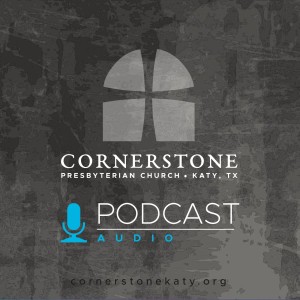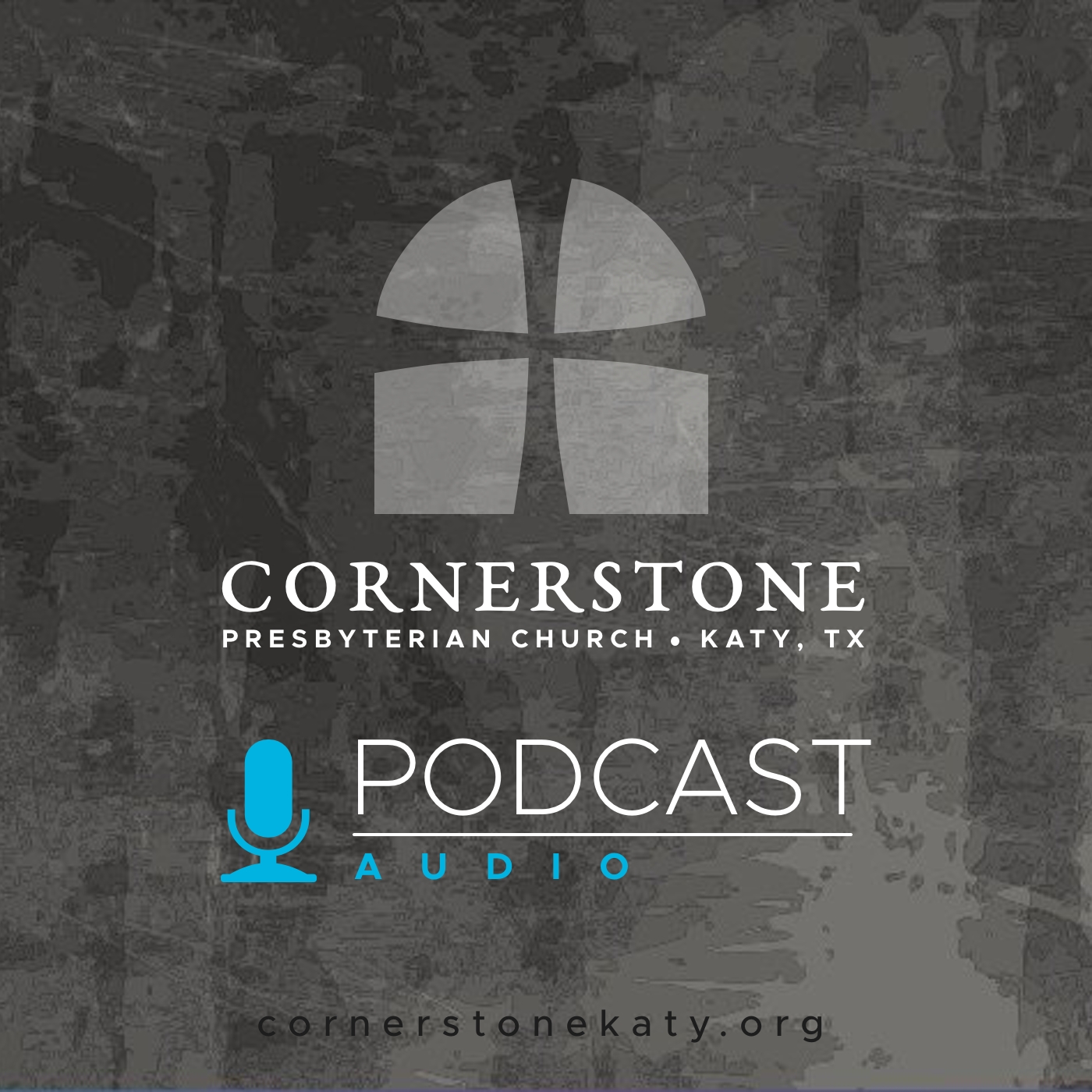Episodes

Sunday Jul 13, 2025

Sunday Jul 06, 2025

Sunday Jun 29, 2025

Sunday Jun 22, 2025

Sunday Jun 15, 2025
Church and Ministry
Sunday Jun 15, 2025
Sunday Jun 15, 2025
Ephesians 4:11-16
If you remember we started this series on discipleship with a question: What is God doing in your life? You’ve had several weeks to think about that. Have you been able to come up with a list? Remember, the gospel is the power of God for salvation at work in you. So let me ask you another important question.
What do you need to reach full maturity?
If we were talking about your physical maturity, you might answer that in a variety of ways. Some of you might need better nutrition. Maybe you don’t have very good eating habits and your bodies are unhealthy as a result. Others of you might need better exercise routines. You might eat well but your lack of exercise leaves you weak and lethargic. Others might be sick or have something broken and need intervention to get on the right track.
Do you know where we find good spiritual food? In the church.
Do you know where we find good exercise? In the church
Do you know where we find good corrective help to get on the right track? In the church.
To reach maturity in Christ, which means to grow into Christlike character, we have been knit together as a church. Spiritual maturity for you, as an individual, is tied together with the spiritual maturity of the Church body as a whole.
This is why Paul writes in verse 15-16,
Rather, speaking the truth in love, we are to grow up in every way into him who is the head, into Christ, 16 from whom the whole body, joined and held together by every joint with which it is equipped, when each part is working properly, makes the body grow so that it builds itself up in love.
Let that sink in. Your spiritual maturity and my spiritual maturity are not mutually exclusive. They are tied together. What does that mean? It means that if you want to grow toward spiritual maturity, then you have a vested interest in me and I have a vested interest in you.
Spiritual maturity, therefore, is only found in the Church. You must find your place in it.

Sunday Jun 08, 2025
Church and Community
Sunday Jun 08, 2025
Sunday Jun 08, 2025
Colossians 3:12-17
Last week my son Mercer, who lives in Oregon, surprised us with an unannounced visit home. We had a great week together and it was sad to see him go. We talked the next day and he shared with me what he had come to realize: being part of a loving community is vital. He moved there 4 years ago and has worked in a variety of places and met a variety of people. He has plenty of friends. But he still feels the weight of loneliness often. During those four years I’ve encouraged him to find a church home, and while he’s agreed it’s a good idea, he hasn’t done it. But after this last trip home something clicked. He said to me, “dad, it’s beautiful up here in Oregon. There are so many amazing sights to see and things to do that I love, but without people who love you, its just not worth it. Having a healthy community around you is more important.”
My oldest son experienced something similar in the Spring of his freshman year of college. He called one night feeling homesick. I could hear it in his voice. I packed a bag and went out to visit him for a few days.
There experiences are far from unique. What were they missing? They were missing the love that can only be found inside a loving family. Now I recognize that not everyone has a positive family experience. For some, that sense of belonging has come within other forms of community. And if we don’t recognize our need for it, we will sooner or later find ourselves sinking.

Sunday Jun 01, 2025
Sabbath Practice
Sunday Jun 01, 2025
Sunday Jun 01, 2025
Mark 2:23-28
After last week’s message on Sabbath Rest, one of our elders loaned me a book that describes in far more detail the things I was saying about the importance of sleep for your health, written by preeiminent neoroscientist and sleep expert, Dr. Mattew Walker. He concludes,
Sleep is of vital importance. It enhances our ability to learn and to make decisions, recalibrates our emotions, restocks our immune system, and regulates our appetite.
Those are all pretty significant aspects of life, wouldn’t you say? So Let’s take another poll this week, though slightly different from last, now that you’ve had a week to consider the importance of sleep in your own life. How many of you did something different this week to try and get enough sleep, which is said to be between 7-9 hours a night?
Of course, last week the focus wasn’t on physical sleep but Sabbath Rest. Hopefully you walked away last week with some motivation to experience Sabbath Rest. So how many of you did something different this week to experience Sabbath rest?
If you didn't, I don’t blame you. We didn’t really talk about how you could. We talked about some important principles of Sabbath rest. We talked about how it is a gift from God. And we talked about how it is received by faith. And then we talked about how we are to “strive” to enter that rest. In other words, we were achowledging that God’s Sabbath given to us, is something we must work hard to enter. It seems paradoxical, I know. I hope, at the very least, that you walked away last week wanting to enter God’s rest; wanting to experience this rest for your soul. To help you in that, this week I want to spend more time talking about practicing the Sabbath. Because the reality of our need for it still exists. We need an answer to our soul’s weariness.
So, how do we practice it? We walk with Jesus. He is the Lord of the Sabbath.
This is what we see the disciples doing in this text from Mark 2. I chose this text because a window is open to see both activity of Jesus and the disciples on the Sabbath, and Jesus’ teaching on the Sabbath. Through this we can derive guidelines for practicing the Sabbath in light of its goal, as we walk with the giver of rest.

Sunday May 25, 2025
Sabbath Rest
Sunday May 25, 2025
Sunday May 25, 2025
Hebrews 4:9-13
There may be no greater need in today’s busy world than rest. People everywhere tap into this as a market with the rise of airbnb and vrbo, cruises, and timeshares. They are all selling rest and most of us are buying it. We buy it believing that it will somehow wipe away the weariness of our daily grind. And we love these times. We come home with good stories to share and memories to savor. We call them vacations. Who is not looking forward to a vacation?
As much as we love them, how much did they help in your need for rest? In my experience they seem to have one or two impacts. Which of these are like your own experience. You need a vacation from your vacation. When you get home from family outings and sight seeing, you’re often exhausted and you need more time to unwind. Or, you feel a bit of heartache because it creates more of a desire to escape your everyday life.
The reality is, our vacations, as much as we might love them, don’t satisfy our need for rest. So, what will?
The Sabbath. It is why God gave it to you as a gift. So why don’t we feel rested as Christians? Why don’t we feel rested even when we are faithful to come each week to worship? Because we really don’t understand the Sabbath.

Sunday May 18, 2025
I Have Determined
Sunday May 18, 2025
Sunday May 18, 2025
Genesis 6-8 Selected verses
In the story of Noah's faithfulness at the end of the world we see the faithfulness and power of our covenant God, who is at work today in his church to gather a people for himself from all nations.

Sunday May 11, 2025
Worship: Returning our Desires
Sunday May 11, 2025
Sunday May 11, 2025
Psalm 96
Last week we started a series on discipleship. We’re looking at this because every Christian is on this road. Where is this road leading? It’s leading to the land of promise. That’s how we defined the gospel last week. The gospel is the good news that God has come to his people
- to set them free from their enslavement to the false gods of the world,
- bring them into a relationship with himself, and
- prepare them for the land of promise.
We can also say it like this: God loves you just as you are, but his love won’t leave you just as you are. Why not? Because you are not yet ready for this land of promise. We have to come to grips with this perspective of the gospel or the New Testament is reduced to helpful, though not necessary information. So if we are being prepared for the land of promise, what has to change in you? Lots of things!
There is a tendency to describe these things in terms of behavior. After all, there is a lot of instruction on how you are to live. We talked about some of those as examples last week. In the sermon on the mount Jesus teaches an ethic that associates calling your brother a fool with murder, lustful looks at a women as adultery. These are behavioral changes that our preparation for the land of promise must bring about.
If these are going to change, what’s has to change in us? Is it simply more resolve? Are we short of will power? Are we lacking motivation? Self-help books can help you with all of these. However, Paul tried them and they didn’t work. This is his story in Romans chapter 7. So, what has to change in us? I don’t think its a matter of will power. I think it is a matter of desire. Aren’t we, in the end, driven by our desires?
We we are to be prepared for this land of promise, he doesn’t start with a change of our behavior. He starts with a change of our desires. It is why the New Covenant promise was for a new heart, and it is why we find so much in the New Testament around this idea of being a new creation. Paul explains, you were taughtEphesians 4:22–24ESV
to put off your old self, which belongs to your former manner of life and is corrupt through deceitful desires, and to be renewed in the spirit of your minds, and to put on the new self, created after the likeness of God in true righteousness and holiness.
If we are to put on this new self—the one that is being prepared for this land of promise—then it begins with a renewal of the mind and a breaking free from our enslavement to deceitful desires.
Imagine coming here this morning to play the guitar and find that the strings have become out of tune. That happens a lot. If you pay attention you’ve seen Jeremy turning to tune his strings (or even change them) to make sure they are playing true. We must do this with our desires.
This begins with worship. Whether we realize it or not, worship is something we naturally do. We just don’t necessarily worship God.
Let me explain. When I went to the Grand Canyon as a child, I remember leaning against the rail of a lookout that gave you sweeping views to the North and the South. It was a breathtaking sight. It is not something you can snap a photo of and just leave. You must give it a moment to take it all in, to wrap your mind around how deep it is; how spectacular it is; how grand it is. That’s called worship (with a little “w”). We can’t help but give “worth” to that which we see is so grand before us. And it leaves a lasting impression. I was 12 years old when I saw it and I still remember it to this day.
Three ways we renew our minds and retune our worship to the Lord. We sing, we ascribe, and declare.

